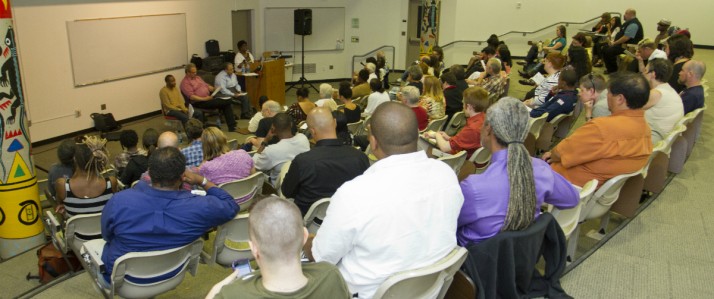As I read the responses to Peter Buffett’s recent op-ed in the New York Times, I started to wonder if Buffett’s most important point was getting lost. The central problem Buffett highlights—the one that many in philanthropy are uncomfortable talking about—is that people of wealth, as Buffett puts it, “are searching for answers with their right hand to problems that others in the room have created with their left.” We’ve created a system where the individuals and companies that perpetuate environmental disasters, human rights abuses, and growing wealth inequality are empowered to direct resources intended to eliminate these problems. That so many have glossed over this point is particularly concerning because the social sector would be a lot stronger if more of us took Buffett’s comments to heart.
Major donors directing dollars intended to address problems they have created is a problem encouraged by many private and community foundations and leads to the “charitable industrial complex” that Buffett warns of, where people spend more time applying social service Band-Aids than creating systemic change. This is why, if we’re ever going to dismantle oppressive systems, those most impacted by poverty, racism, and other forms of injustice need to be the ones deciding how and where to direct philanthropic dollars.
Howard Husock writes on the Forbes site that the main problem with modern philanthropy isn’t a reluctance to fund change-oriented work, but that philanthropy is, “unfriendly to the creation of wealth that provides the resources to solve such problems.”
I’d argue the opposite…
Continue reading at The Nonprofit Quarterly.





